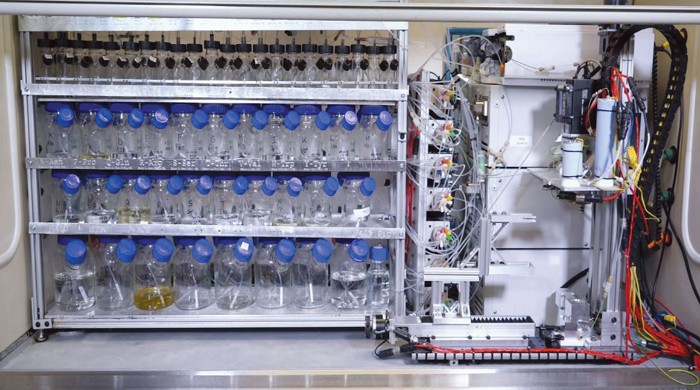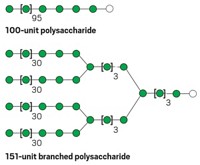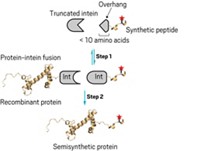Advertisement
Grab your lab coat. Let's get started
Welcome!
Welcome!
Create an account below to get 6 C&EN articles per month, receive newsletters and more - all free.
It seems this is your first time logging in online. Please enter the following information to continue.
As an ACS member you automatically get access to this site. All we need is few more details to create your reading experience.
Not you? Sign in with a different account.
Not you? Sign in with a different account.
ERROR 1
ERROR 1
ERROR 2
ERROR 2
ERROR 2
ERROR 2
ERROR 2
Password and Confirm password must match.
If you have an ACS member number, please enter it here so we can link this account to your membership. (optional)
ERROR 2
ACS values your privacy. By submitting your information, you are gaining access to C&EN and subscribing to our weekly newsletter. We use the information you provide to make your reading experience better, and we will never sell your data to third party members.
Synthesis
Automated synthesizer can make long protein chains quickly
System can build 164-amino-acid-long proteins in hours instead of weeks or months
by Leigh Krietsch Boerner
May 28, 2020
| A version of this story appeared in
Volume 98, Issue 21

Making synthetic proteins can be a slog. Generally, if scientists want to make a protein over 50 amino acids long, they either get an engineered microbe to grow it, or they stitch together shorter synthetic peptides into longer ones. Both options can take weeks to months and involve multiple steps. Bradley L. Pentelute and coworkers at the Massachusetts Institute of Technology have a better plan. They’ve created an automated chemical protocol to synthesize peptides up to 164 amino acids long in hours (Science 2020, DOI: 10.1126/science.abb2491).
Chemists have previously made synthetic peptides using a process called solid-phase peptide synthesis, in which they build a peptide chain one amino acid at a time on a polymer resin. That method can’t make chains greater than 50 amino acids because the longer the process goes, the more likely it is that side reactions will produce aggregated peptides or ones missing amino acids.
In the new method, the researchers get around those problems by running the reaction at a relatively high temperature, 90 °C, forcing the amide-coupling reaction to move faster than the side reactions. The method, called automated fast-flow peptide synthesis, adds amino acids to the growing peptide chain at a rate of 2.5 min per residue. This means their machine, called the Amidator, can make a long peptide in hours, after which the team can purify the proteins and let them fold.
The researchers found that the nine synthetic proteins they made using the Amidator had the correct mass and that those examined for function behaved similarly to proteins made via ribosomes.
“It’s a big time saver,” Pentelute says, “if you can just make the material in a single shot.” It allows chemists to design and synthesize specific proteins using amino acids not found in nature, useful for drug discovery and therapeutics, he says.
The possibilities this work opens up are unprecedented, says Michael J. Bollong, a medicinal chemist at Scripps Research. However, larger proteins might not work with this method.




Join the conversation
Contact the reporter
Submit a Letter to the Editor for publication
Engage with us on Twitter